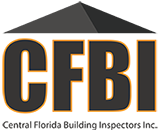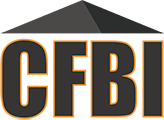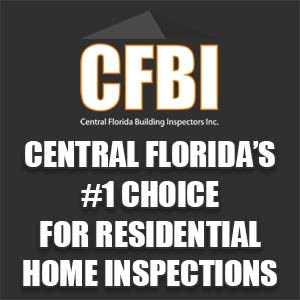Solar Panel (PV) Inspections in Central Florida
Protect your investment and maximize performance with a detailed solar panel inspection from Central Florida Building Inspectors. Our team documents the full condition of your solar system with photos, thermal scans, and clear reports designed for homeowners, buyers, and real estate professionals.
Why Schedule a Solar Inspection?
Solar systems are valuable assets, but even well-installed arrays can develop issues that reduce efficiency or create safety concerns. A professional inspection verifies performance, ensures labeling and safety requirements are met, and gives you confidence whether you’re buying, selling, or maintaining your home.
Common reasons to schedule:
Buying or selling a home with solar
Verifying production or warranty claims
Checking for safety or maintenance concerns
Providing documentation for property managers or agents
Pricing & Bundles
PV system inspection fees vary depending on system size, accessibility, and optional add-ons.
- Call or text 407-863-0651 for an instant quote
- Book online 24/7 with real-time availability
- Bundle and save when adding a solar inspection to a home inspection, roof inspection, or electrical thermal scan
Deliverables You’ll Receive
After the inspection, you’ll get a professional report that makes complex systems easy to understand:
- Same or next-business-day web report + PDF.
- Annotated photo archive for each component.
- Prioritized action plan (safety first, then performance and maintenance).
- Contractor-ready notes to simplify repair or warranty claims.
What’s Included in a PV Inspection
We cover:
Array & Roof Review:
Modules, racking, roof penetrations, and overall condition.
Electrical Path Check:
Thermal Imaging:
Labeling & Documentation:
Shading & Obstructions:
Prioritized Recommendations:
How the Process Works
We’ve designed our solar inspection to be straightforward and thorough:
- Pre-Visit Info – We request basic details (inverter type, monitoring access if available, prior service notes).
- On-Site Capture – Photos of the array, penetrations, electrical equipment, and labels are collected.
- Visual & Thermal Review – We scan for visible defects and hidden anomalies.
- Analysis & Reporting – Findings are broken down with annotated photos and plain-English explanations.
- Delivery – Your inspection report is available the same or next business day.
This step-by-step process ensures every component is evaluated and nothing is missed.
What We Look For
Solar panels can degrade or fail in ways that aren’t obvious from the ground. Our inspections flag hidden issues early to prevent costly repairs.
Typical findings include:
- Hot spots, cracked cells, or delamination
- Loose or overheated wiring connections
- Corrosion inside junction or combiner boxes
- Exposed conductors or poor wire routing
- Missing or incorrect rapid shutdown and disconnect labels
- Roof risks from improper flashing or missing hardware
Each issue is documented in your report with photos and clear next steps.
FAQs
Have questions about the Solar Panel (PV) inspection process? Our FAQs cover everything you need to know before scheduling your Solar Panel (PV) Inspection service.
Do I need drone imaging?
Will you measure production?
Is this a code compliance inspection?
What if my system isn’t producing?



